Filter by
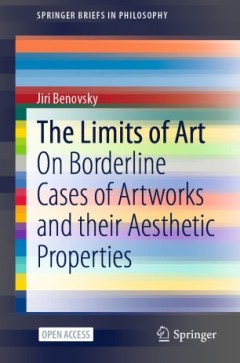
The limits of art : on borderline cases of artworks and their aesthetic prope…
This open access book is about exploring interesting borderline cases of art. It discusses the cases of gustatory and olfactory artworks (focusing on food), proprioceptive artworks (dance, martial arts, and rock climbing qua proprioceptive experiences), intellectual artworks (philosophical and scientific theories), as well as the vague limits between painting and photography. The book focus…
- Edition
- -
- ISBN/ISSN
- 9783030547950
- Collation
- ix, 57p. : ill.
- Series Title
- -
- Call Number
- 146.4 BEN l
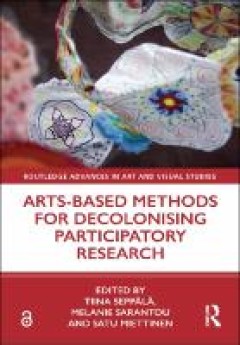
Arts-based methods for decolonising participatory research
In an effort to challenge the ways in which colonial power relations and Eurocentric knowledges are reproduced in participatory research, this book explores whether and how it is possible to use arts-based methods for creating more horizontal and democratic research practices. In discussing both the transformative potential and limitations of arts-based methods, the book asks: What can arts-bas…
- Edition
- -
- ISBN/ISSN
- 9781003053408
- Collation
- XIV, 264 p.
- Series Title
- Routledge Advances in Art and Visual Studies
- Call Number
- 700.103 ART a
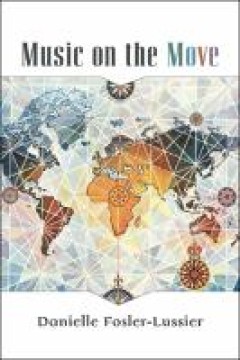
Music on the move
"Music is a mobile art. When people move to faraway places, whether by choice or by force, they bring their music along. Music creates a meaningful point of contact for individuals and for groups; it can encourage curiosity and foster understanding; and it can preserve a sense of identity and comfort in an unfamiliar or hostile environment. As music crosses cultural, linguistic, and political b…
- Edition
- -
- ISBN/ISSN
- 9780472901289
- Collation
- XIII, 308 p
- Series Title
- -
- Call Number
- 780.9 FOS m
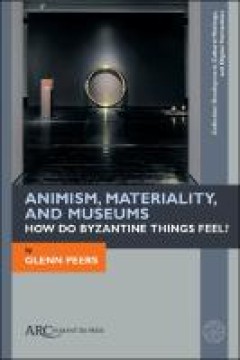
Animism, materiality, and museums: how do Byzantine things feel?
Among our most cherished modern assumptions is our distance from the material world we claim to love or, alternately, to dominate and own. As both devotional tool and art object, the Byzantine icon is rendered complicit in this distancing. According to well-established theological and scholarly explanations, the icon is a window onto the divine: it focuses and directs our minds to a higher unde…
- Edition
- -
- ISBN/ISSN
- 9781942401742
- Collation
- x, 167p.: ill.
- Series Title
- -
- Call Number
- 709.0214 PEE a
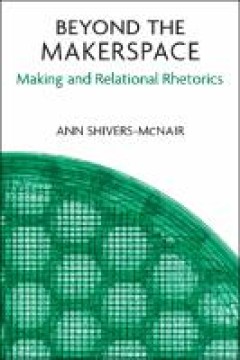
Beyond the makerspace: making and relational rhetorics
Makerspaces—local workshops that offer access to and training on fabrication technologies, often with a focus on creativity, education, and entrepreneurship—proliferated in the 2010s, popping up in cities across the world. Beyond the Makerspace is a longitudinal, ethnographically informed study of a particular Seattle makerspace that begins in 2015 and ends with the closing of the space in …
- Edition
- -
- ISBN/ISSN
- -
- Collation
- IX, 148 p.
- Series Title
- Sweetland Digital Rhetoric Collaborative,
- Call Number
- 428.00712 SHI b
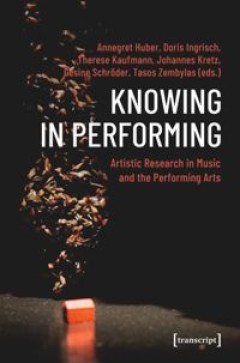
Knowing in performing: artistic research in music and the performing arts
How can performing be transformed into cognition? Knowing in Performing describes dynamic processes of artistic knowledge production in music and the performing arts. Knowing refers to how processual, embodied, and tacit knowledge can be developed from performative practices in music, dance, theatre, and film. By exploring the field of artistic research as a constantly transforming space for pa…
- Edition
- -
- ISBN/ISSN
- 9780429323058
- Collation
- 224 p.
- Series Title
- -
- Call Number
- 790.2 KNO K
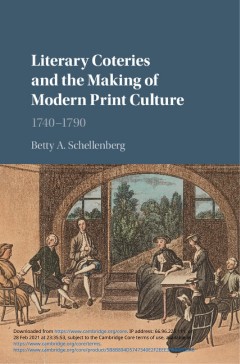
Literary coteries and the making of modern print culture, 1740-1790
Literary Coteries and the Making of Modern Print Culture offers the first study of manuscript-producing coteries as an integral element of eighteenth-century Britain's literary culture. As a corrective to literary histories assuming that the dominance of print meant the demise of a vital scribal culture, the book profiles four interrelated and influential coteries, focusing on each group's depl…
- Edition
- -
- ISBN/ISSN
- 9781316423202
- Collation
- xii, 308p. : ill.
- Series Title
- -
- Call Number
- 820.9006 SCH l
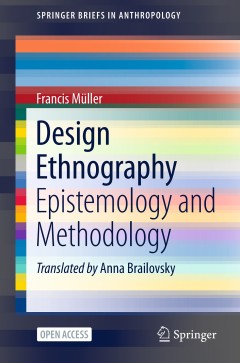
Design ethnography : epistemology and methodology
This open access book describes methods for research on and research through design. It posits that ethnography is an appropriate method for design research because it constantly orients itself, like design projects, towards social realities. In research processes, designers acquire project-specific knowledge, which happens mostly intuitively in practice. When this knowledge becomes the subject…
- Edition
- -
- ISBN/ISSN
- 9783030603960
- Collation
- ix, 93p. : ill.
- Series Title
- -
- Call Number
- 305.8 MUL d
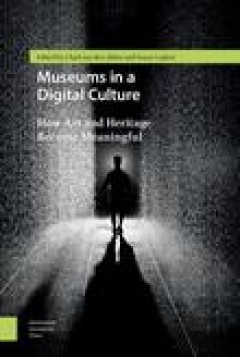
Museums in a Digital Culture
The experience of engaging with art and history has been utterly transformed by information and communications technology in recent decades. We now have virtual, mediated access to countless heritage collections and assemblages of artworks, which we intuitively browse and navigate in a way that wasn't possible until very recently. This collection of essays takes up the question of the cultural …
- Edition
- -
- ISBN/ISSN
- 9789089646613
- Collation
- 143p.: ill.
- Series Title
- -
- Call Number
- 069.0285 VAN m
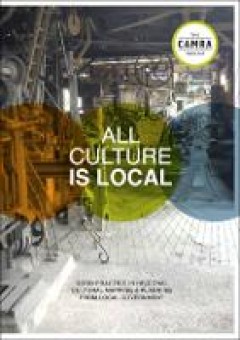
All Culture is local : good practice in regional cultural mapping and plannin…
This book is an outcome from a five year Australian Research Council funded research project, CAMRA cultural asset mapping in regional Australia project (LP0882238). Over this time four universities, four local governments, and peak regional, state and federal agencies sought to develop knowledge that would enable better informed planning for arts and cultural development in rural and regional …
- Edition
- -
- ISBN/ISSN
- 9781863654333
- Collation
- 120 p.; 22 cm.
- Series Title
- -
- Call Number
- 720 ALL a
 Computer Science, Information & General Works
Computer Science, Information & General Works  Philosophy & Psychology
Philosophy & Psychology  Religion
Religion  Social Sciences
Social Sciences  Language
Language  Pure Science
Pure Science  Applied Sciences
Applied Sciences  Art & Recreation
Art & Recreation  Literature
Literature  History & Geography
History & Geography